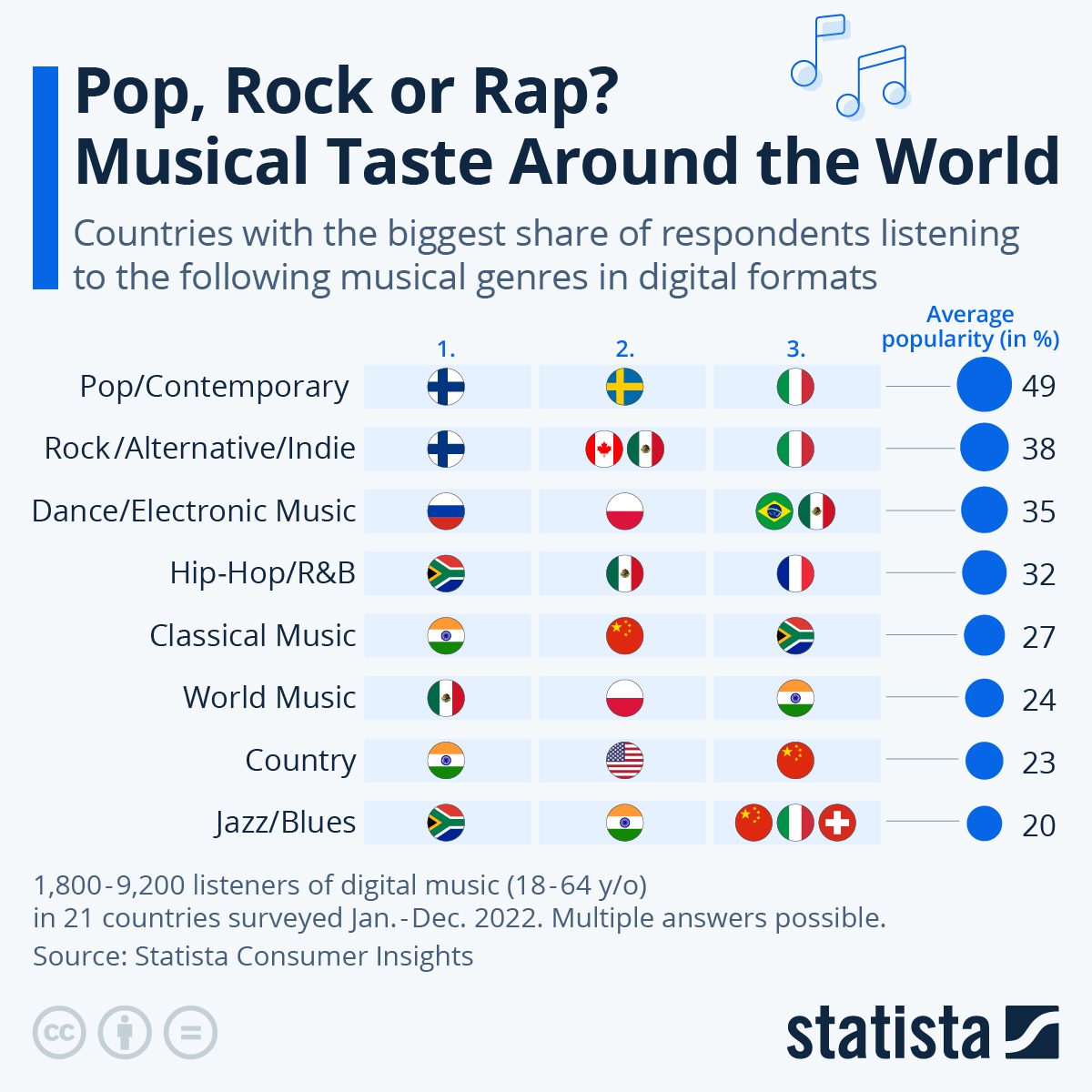Mainstream music offers catchy tunes, repetitive lyrics and an easy-to-follow beat that caters to a wider audience. Produced by well-known record labels, the artists tend to conform to the mainstream culture and trends. In contrast, alternative music offers unique sound, creative songwriting, originality and authenticity. Produced independently or by small record labels, their focus is creativity and experimentation rather than commercial success. While mainstream music dominates charts and enjoys high commercial success, alternative music challenges the status quo and introduces new sounds and ideas. Recognizing the impact both genres have on the music industry and society is essential to appreciate the best of two worlds.
The Best of Two Worlds: Comparing Alternative and Mainstream Music Genres
Music has always been an integral part of human life, with its various genres catering to different tastes and preferences. Two of the most popular music genres that have been in the spotlight for some time now are mainstream and alternative music. While many people tend to associate these genres with specific groups, it may come as a surprise to know that both have several similarities and differences. So, let’s dive deeper into the world of music and explore the best of two worlds by comparing and contrasting mainstream and alternative music genres.
Definition of Mainstream and Alternative Music
Mainstream music refers to the most popular music genres that dominate the charts and enjoy high commercial success. These genres include pop, hip hop, R&B, rock, and country music, to name a few. Mainstream music is often characterized by its catchy tunes, repetitive lyrics, and easy-to-follow beats that cater to a wide audience. It is produced by well-known record labels, and the artists tend to conform to the mainstream culture and trends.
On the other hand, Alternative music refers to a wide range of genres that do not conform to the norms of mainstream music. These genres encompass a wide range of sub-genres, including indie, punk rock, electro-pop, and experimental music. Alternative music is often characterized by its unique sound, creative songwriting, and a focus on originality and authenticity rather than commercial success. It is produced by independent record labels, and the artists tend to challenge the status quo and experiment with their music to create something new.
Composition and Style
Mainstream music is often produced by a team of songwriters, producers, and record labels who invest heavily in marketing and promotion. The lyrics of mainstream music tend to be simplistic, often focusing on love, relationships, and partying, with a repetitive chorus that makes it easy to sing along. The style of mainstream music is often polished and produced, with catchy hooks that can grab the audience’s attention instantly. The instrumentation is often synthetic, with a focus on electronic beats, auto-tuned voices, and overproduction to create a polished sound.
Alternative music, on the other hand, is often produced independently or by small record labels that focus on creativity and experimentation. The lyrics of alternative music tend to be more introspective and thoughtful, often delving into complex themes such as politics, social issues, and personal struggles. The style of alternative music is often raw and unpolished, with an emphasis on live performances and authentic sound. The instrumentation can vary widely, from acoustic guitars to synthesizers to experimental sounds, and the focus is on creating unique and innovative soundscapes.
Target Audience
Mainstream music is often targeted towards a wide audience, with the aim of creating catchy tunes that can appeal to everyone. The lyrics tend to be simple and easy to follow, catering to a wider audience. The style is often polished and upbeat, with a focus on creating a party atmosphere that can appeal to young adults and teenagers.
Alternative music, on the other hand, is often targeted towards a smaller, more niche audience that appreciates creativity and authenticity over commercial success. The lyrics tend to be more complex and thought-provoking, catering to a more mature audience. The style is often raw and introspective, with an emphasis on creating an emotional connection with the audience that can appeal to music enthusiasts.
Impact on the Industry
Mainstream music has a significant impact on the music industry, with its high commercial success and popularity leading to increased revenue for record labels and artists. The mainstream music market is highly competitive, with trends and styles changing rapidly, and record labels investing heavily in marketing and promotion to stay on top. However, the focus on commercial success can often lead to a lack of creativity and originality, with many mainstream songs following a similar formula.
Alternative music, on the other hand, has a significant impact on the music industry by challenging the status quo and introducing new sounds and ideas into the market. Alternative music often acts as a breeding ground for new talent, with many successful mainstream artists beginning their careers in alternative music. However, independent and alternative music faces significant challenges when it comes to reaching a wider audience and gaining commercial success.
Conclusion
Both mainstream and alternative music genres have their unique strengths and weaknesses. While mainstream music dominates the charts and enjoys high commercial success, alternative music offers creativity, originality, and authenticity. Regardless of one’s preference, it’s essential to appreciate both genres and recognize the impact they have on the music industry and society as a whole. In the end, the best of two worlds lies in finding a balance between commercial success and creativity, and this can only be achieved by pushing the boundaries and experimenting with new sounds and ideas.
